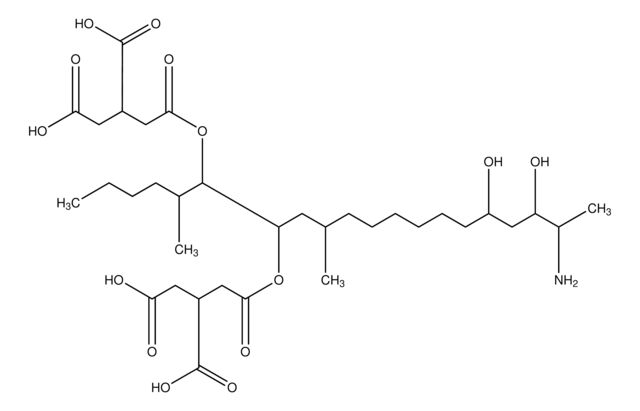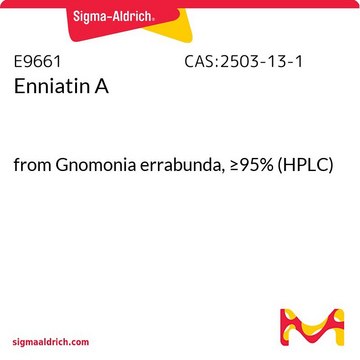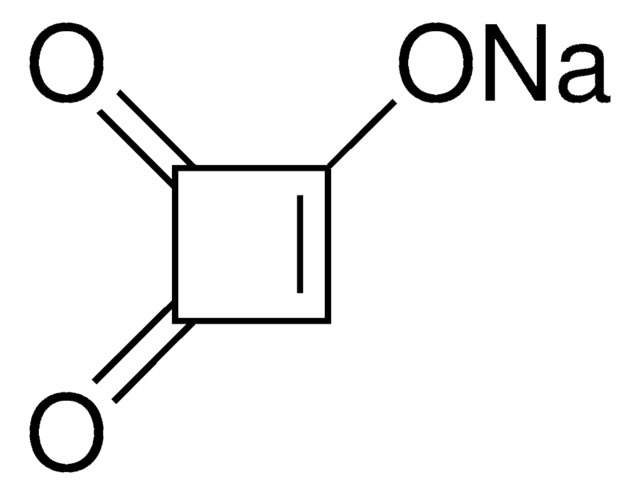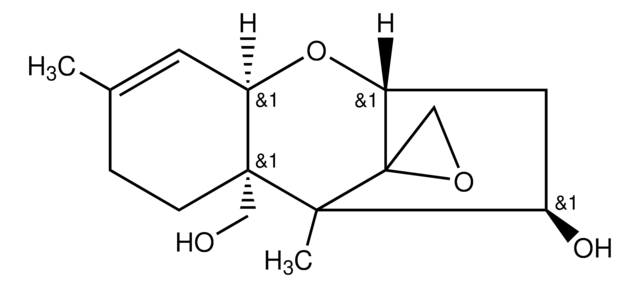T4887
T-2 Toxin
from Fusarium sp., powder, ≥98% (HPLC)
Synonym(s):
12,13-Epoxytrichothec-9-ene-3,4,8,15-tetrol-4,15-diacetate-8-isovalerate, 4β,15-Diacetoxy-3α-hydroxy-8α-(3-methylbutyryloxy)-12,13-epoxytrichothec-9-ene
About This Item
Recommended Products
biological source
Fusarium sp.
Quality Level
Assay
≥98% (HPLC)
form
powder
availability
not available in USA, Japan
color
white
solubility
chloroform: soluble 9.80-10.20 mg/mL, clear, colorless to faintly yellow
DMSO: freely soluble
petroleum ether: slightly soluble
storage temp.
−20°C
SMILES string
[H][C@]12O[C@]3([H])[C@H](O)[C@@H](OC(C)=O)[C@](C)([C@@]1(COC(C)=O)C[C@H](OC(=O)CC(C)C)C(C)=C2)[C@]34CO4
InChI
1S/C24H34O9/c1-12(2)7-18(27)32-16-9-23(10-29-14(4)25)17(8-13(16)3)33-21-19(28)20(31-15(5)26)22(23,6)24(21)11-30-24/h8,12,16-17,19-21,28H,7,9-11H2,1-6H3/t16-,17+,19+,20+,21+,22+,23+,24-/m0/s1
InChI key
BXFOFFBJRFZBQZ-QYWOHJEZSA-N
Looking for similar products? Visit Product Comparison Guide
Application
Biochem/physiol Actions
Quality
Preparation Note
Signal Word
Danger
Hazard Statements
Precautionary Statements
Hazard Classifications
Acute Tox. 1 Dermal - Acute Tox. 1 Inhalation - Acute Tox. 1 Oral - Skin Irrit. 2
Storage Class Code
6.1A - Combustible acute toxic Cat. 1 and 2 / very toxic hazardous materials
WGK
WGK 3
Flash Point(F)
Not applicable
Flash Point(C)
Not applicable
Personal Protective Equipment
Choose from one of the most recent versions:
Already Own This Product?
Find documentation for the products that you have recently purchased in the Document Library.
Our team of scientists has experience in all areas of research including Life Science, Material Science, Chemical Synthesis, Chromatography, Analytical and many others.
Contact Technical Service








